




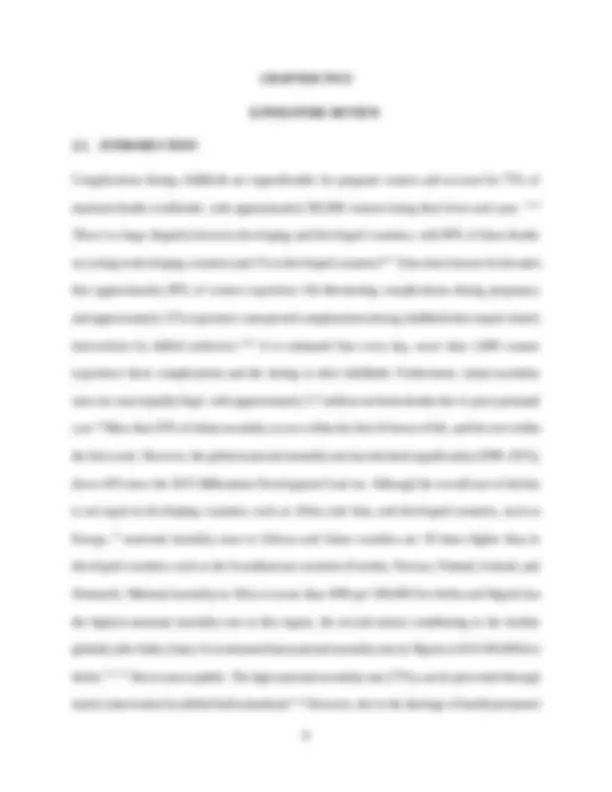

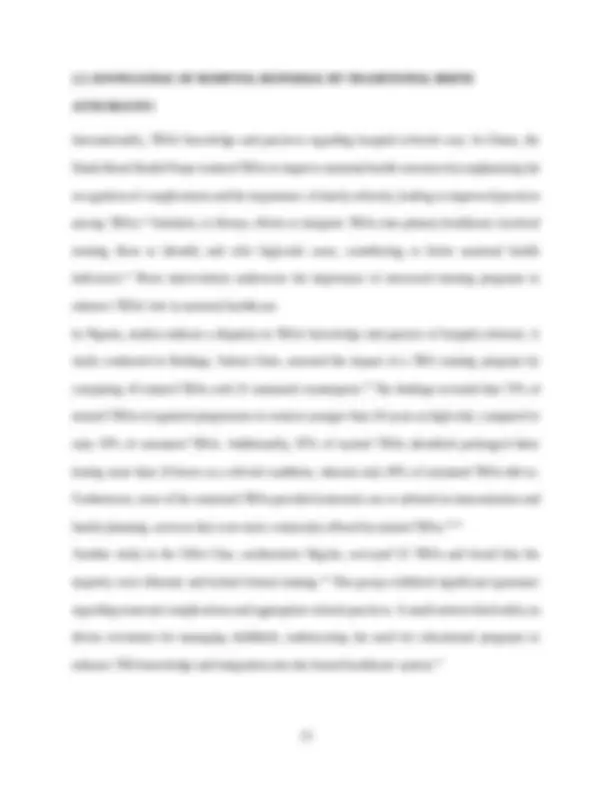
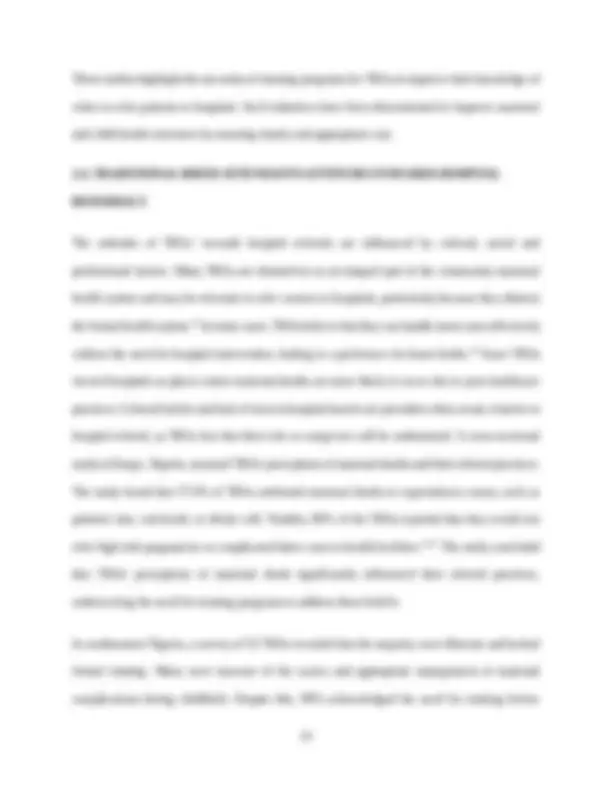








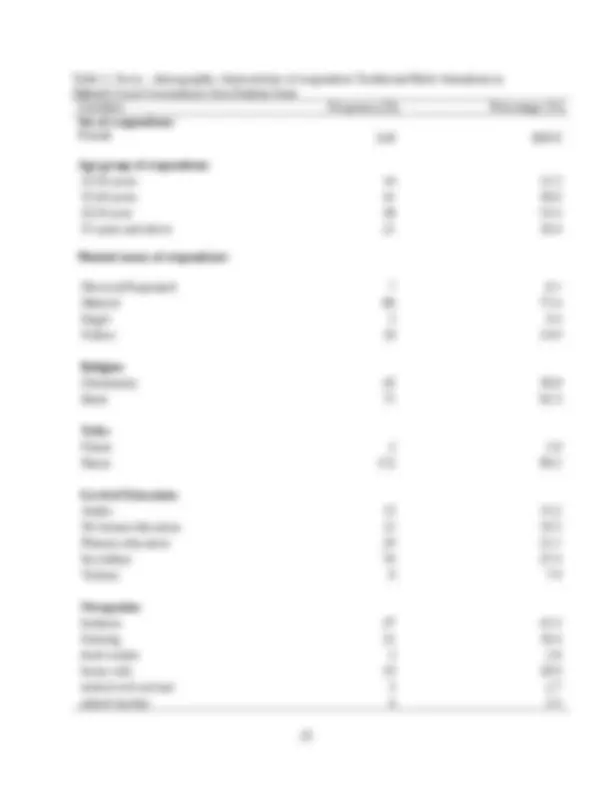
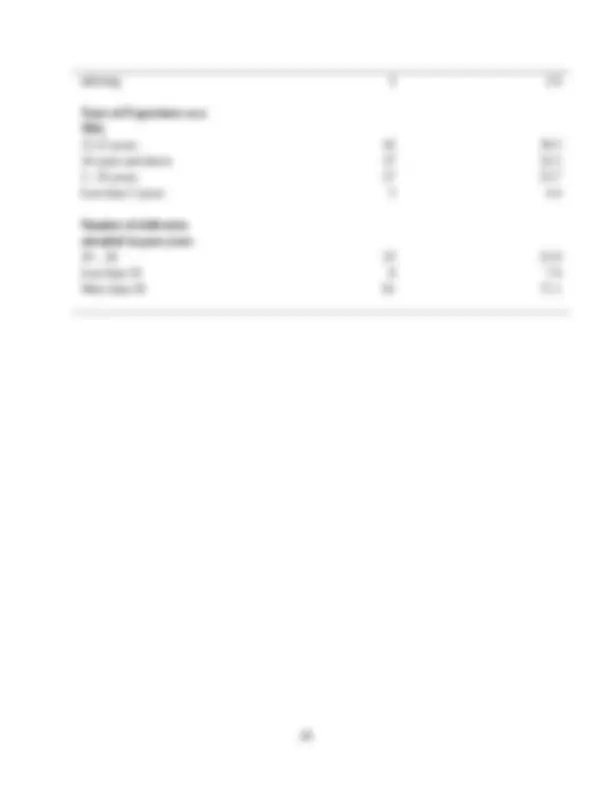




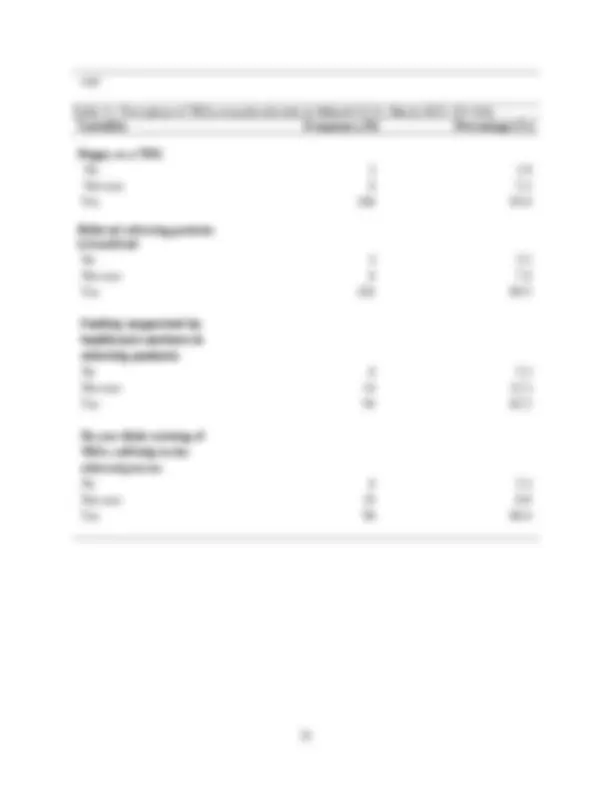


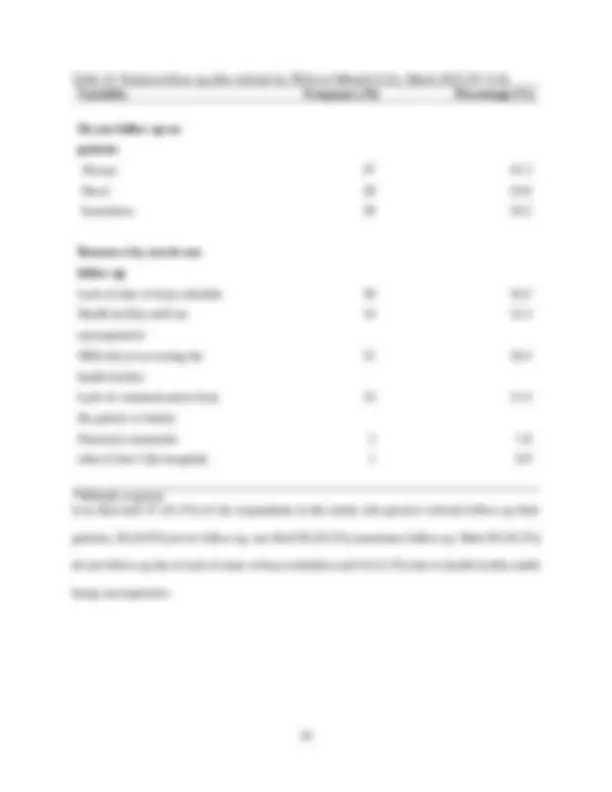






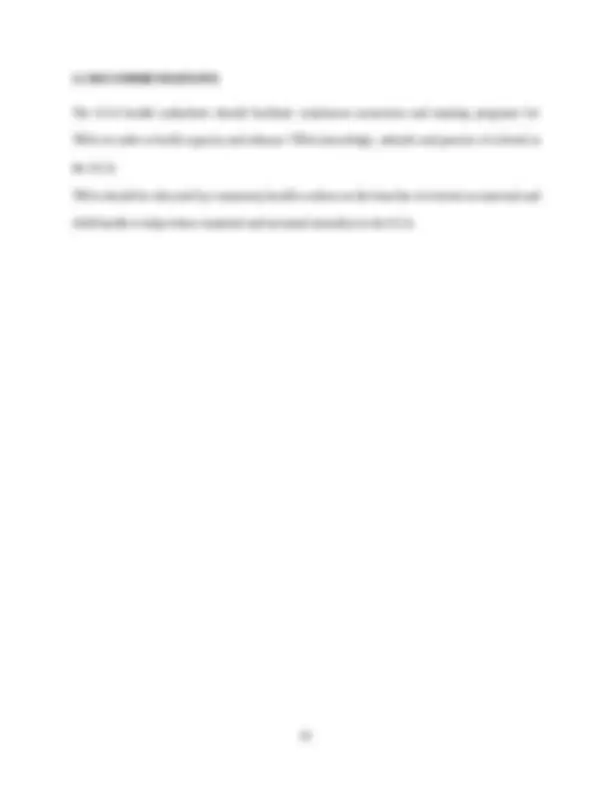

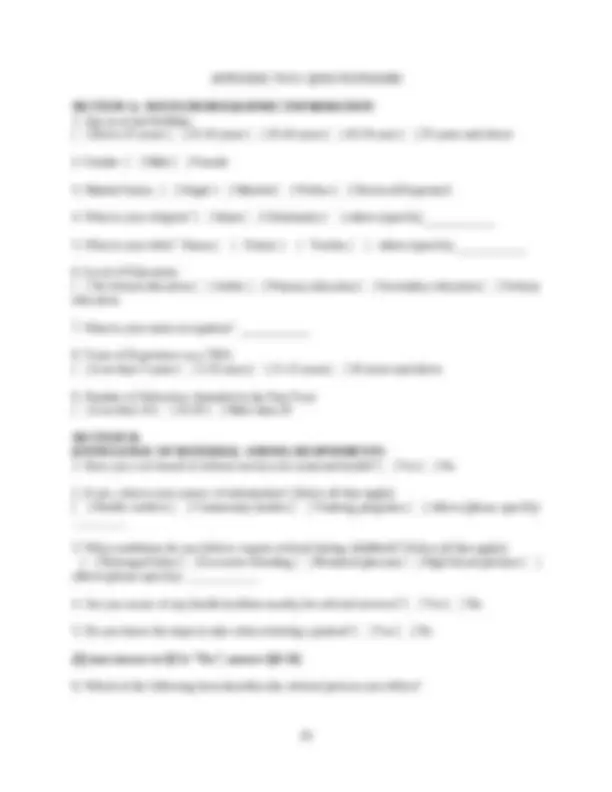









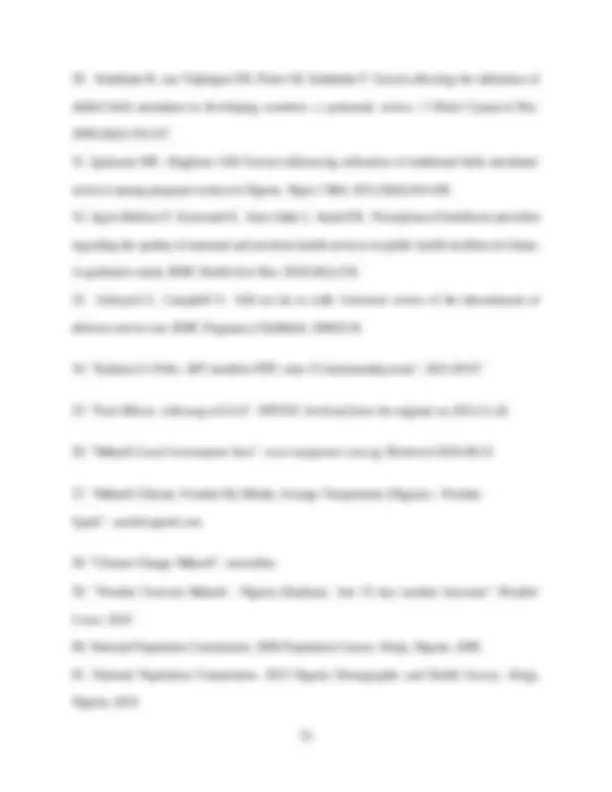



Study with the several resources on Docsity

Earn points by helping other students or get them with a premium plan


Prepare for your exams
Study with the several resources on Docsity

Earn points to download
Earn points by helping other students or get them with a premium plan
Community
Ask the community for help and clear up your study doubts
Discover the best universities in your country according to Docsity users
Free resources
Download our free guides on studying techniques, anxiety management strategies, and thesis advice from Docsity tutors
A thesis on solid waste management
Typology: Thesis
1 / 54

This page cannot be seen from the preview
Don't miss anything!















































Maternal and neonatal health remains a significant global challenge, with maternal mortality continuing to be a major public health concern. According to the World Health Organization (WHO), approximately 287,000 women die annually due to pregnancy-related complications, with the majority of these deaths occurring in low- and middle-income countries (LMICs).^1 Traditional Birth Attendants (TBAs) play a crucial role in providing maternal care, particularly in rural and underserved communities where access to formal healthcare is limited. However, their knowledge, attitudes, and practices regarding referral systems remain a critical factor in improving maternal and newborn survival rates.^2 Across various regions, the reliance on TBAs varies depending on the availability and accessibility of healthcare services. In Asia and Latin America, some countries have made efforts to integrate TBAs into formal healthcare systems through training and policy development.^3 In South and Southeast Asia, TBAs actively participate in community-based maternal healthcare, although challenges such as limited knowledge of referral processes persist.^4 Despite these interventions, delays in referral remain a contributing factor to maternal mortality in these regions. Africa has the highest burden of maternal and neonatal mortality, with Sub-Saharan Africa accounting for nearly 70% of global maternal deaths.^5 In many African countries, TBAs remain the primary caregivers during childbirth, particularly in rural and remote communities where formal healthcare services are insufficient.^6 Although various governments have attempted to regulate and train TBAs to enhance their referral knowledge, weak health systems and inconsistent policies limit the effectiveness of these interventions.^7
complications and fail to refer high-risk cases in a timely manner.^17 Strengthening their knowledge and attitudes towards referral could play a crucial role in reducing maternal deaths in the region. Makarfi, a rural LGA in Kaduna State, faces significant maternal health challenges due to limited access to healthcare services. A large proportion of pregnant women rely on TBAs, many of whom have received little or no formal training in managing obstetric emergencies.^18 The lack of a structured referral system exacerbates maternal and neonatal mortality rates in the area. Assessing the knowledge, attitudes, and practices of TBAs in Makarfi regarding referrals is essential to identifying gaps and implementing strategies to improve maternal and neonatal healthcare outcomes.^18 1.2. PROBLEM STATEMENT The importance of early referral to a health facility in case of complications during childbirth cannot be overemphasized, as timely medical intervention significantly reduces the risk of maternal and neonatal mortality.^16 The TBAs play a central role in ensuring that childbirth takes place in a supportive and familiar environment. However, there are growing concerns that many TBAs, especially in rural areas, are not knowledgeable enough about the signs of complications that would justify hospital referral.^17 Moreover, even when complications are recognized, TBAs’ attitudes towards hospital referral are often influenced by cultural beliefs, lack of trust in health care providers, and fear of being stigmatized for seeking outside help.^18 These issues not only delay necessary interventions but may also contribute to preventable maternal and neonatal deaths.^19 Often, the reluctance to refer patients is due to a lack of formal training and knowledge of modern medical practices. While some TBAs may have advanced knowledge about managing uncomplicated births, they may lack knowledge about conditions that require referral, such as pre-
eclampsia, obstructed labor, and postpartum hemorrhage.^20 This knowledge gap is often exacerbated by TBAs' attitudes, which may be influenced by long-standing cultural practices and beliefs about the role of health care providers in maternal care.^21 This persistence of knowledge gaps and negative attitudes towards hospital referrals highlights the need for research into traditional midwifery knowledge, attitudes, and practices (KAP) regarding referrals. Exploring these factors is essential to understanding the barriers and challenges TBAs face in referring women to health services when needed and to identifying potential solutions to address these gaps. 1.1. JUSTIFICATION OF STUDY The World Health Organization (WHO) has emphasized the importance of improving the quality of maternal healthcare services, particularly in low- and middle-income countries, to achieve the SDGs, particularly Goal 3 (Good Health and Well-being).^16 One of the critical strategies to reduce maternal mortality rates is ensuring that skilled care is available during childbirth, especially when complications arise. However, in many rural and remote areas, where access to hospitals and skilled birth attendants is limited, TBAs continue to be the primary source of care for women in labor.^22 Understanding TBAs' knowledge, attitudes, and practices regarding hospital referrals is, therefore, essential to improving maternal health outcomes in these regions. This study is crucial for several reasons. First, it seeks to highlight the knowledge gaps that may exist among TBAs regarding complications of pregnancy and during labor, which require medical intervention. By identifying these gaps, the study can inform the development of targeted training programs that will improve the quality of care provided by TBAs and empower them to make more informed decisions about referrals.^23 Training TBAs to recognize the signs of complications and understand the importance of timely referrals can help reduce the incidence of preventable maternal and neonatal deaths.^19 Secondly, this study will likely provide more insights into the
By exploring TBAs knowledge, attitudes and practices regarding hospital referrals, the study could provide valuable information to policy makers, health care providers and international development agencies focused on maternal health. The knowledge gained could contribute to the development and/or strengthening of evidence-based policies and intervention programs that address the specific needs of TBAs, thereby helping to build more integrated, responsive and effective maternal health care systems. Furthermore, the findings can inform the development of training programs that bridge the knowledge gap between traditional and modern birthing practices, thereby improving maternal and newborn health outcomes. 1.3. RESEARCH QUESTIONS
To assess the knowledge, attitude, and practice of traditional birth attendants (TBAs) towards referral in Makarfi Local Government Area of Kaduna State 1.4.2 SPECIFIC OBJECTIVES I. To assess the knowledge of TBAs about danger signs in pregnancy and childbirth, referral criteria, and procedures in Makarfi Local Government Area of Kaduna State. II. To determine the attitudes of TBAs towards referral practices. III. To assess TBAs perception of the benefits and drawbacks of referral in Makarfi Local Government of Kaduna State. IV. To assess the referral practices of TBAs, including frequency and modes of referrals in Makarfi Local Government Area of Kaduna State. V. To identify the factors influencing the referral practices of TBAs in Makarfi Local Government of Kaduna State.
and the health care research behavior of certain pregnant women24,31^ more than 60% of deliveries are supervised by traditional birthdays which are not officially trained31,33^ Consequently, they are not equipped with knowledge and skills to manage the complications of pregnancy, but these TBAs can facilitate the timely orientation of pregnant women at high risk for qualified deliveries, which has been significant for better results of maternal and child health. Referral for this study is defined as the process by which traditional midwives at the community level identify high-risk pregnancy and delivery complications early and refer pregnant women to skilled midwives despite not having sufficient knowledge and skills to manage delivery complications. Referral to primary health care centers and when this is beyond their capacity, they refer to the next level of health care as they have limitations in the care they can provide.^35 That is, it refers to the secondary level of care according to the Nigerian health care system as primary health care workers at a certain level are unable to properly manage severe complications and the last level of care is the tertiary level. West Africa has one of the highest maternal mortality rates in the world. According to UNICEF, maternal mortality in West Africa is approximately 560 per 100,000 live births, with significant differences between countries in the region.^37 Traditional birth attendants play a key role in maternal health care in the region, especially in rural and peri-urban areas where health infrastructure is less developed.^38 Although TBA has cultural roots in many West African societies, research suggests that a lack of awareness of obstetric complications and the importance of timely referral to hospital leads to poor maternal outcomes.^38 Integrating TBAs into the formal health system, including facilitating hospital referral, remains a key challenge in improving maternal health outcomes in the region. For example, some TBAs may feel that referring women to a hospital is a sign of failure or may fear losing their status and trust within the community.
Addressing these perceptions through sensitization programs can improve the likelihood of timely referrals.^20 Nigeria has one of the highest maternal mortality rates at 512 per 100,000 live births.^39 The Nigerian health system faces challenges such as inadequate medical infrastructure, especially in rural areas, poor quality of care, and a shortage of skilled health care providers.^39 TBAs continue to play a crucial role in maternal health, and many women rely on birth attendants due to economic, cultural, and geographical barriers that hinder access to formal health care.^40 To this end, the Nigerian government has made efforts to integrate TBAs into the health system to educate them on the role of referral hospitals in managing high-risk pregnancies and complications. However, it remains challenging to ensure that TBAs adhere to referral protocols.^40 Kaduna State is located in the North-Central region of Nigeria, with a mixed urban and rural population. In rural areas, TBAs are the main providers of maternal care and many women prefer home births due to cultural practices and limited access to health facilities. 41 According to the Kaduna State Health Annual Report (2020), maternal mortality in the state remains high and hospital referral practices among TBAs are inconsistent. While some TBAs acknowledge the need for referral, especially in complex cases, many do not know when and how to refer women to hospital, resulting in adverse outcomes for the mother.^41 The state's healthcare system faces challenges such as inadequate transportation, low awareness of referral protocols, and limited collaboration between TBAs and healthcare professionals, all of which hinder effective hospital referrals.^41
Internationally, TBAs' knowledge and practices regarding hospital referrals vary. In Ghana, the Danfa Rural Health Project trained TBAs to improve maternal health outcomes by emphasizing the recognition of complications and the importance of timely referrals, leading to improved practices among TBAs.^44 Similarly, in Kenya, efforts to integrate TBAs into primary healthcare involved training them to identify and refer high-risk cases, contributing to better maternal health indicators.^44 These interventions underscore the importance of structured training programs to enhance TBAs' role in maternal healthcare. In Nigeria, studies indicate a disparity in TBAs' knowledge and practice of hospital referrals. A study conducted in Bodinga, Sokoto State, assessed the impact of a TBA training program by comparing 43 trained TBAs with 31 untrained counterparts.^45 The findings revealed that 74% of trained TBAs recognized pregnancies in women younger than 16 years as high-risk, compared to only 19% of untrained TBAs. Additionally, 95% of trained TBAs identified prolonged labor lasting more than 24 hours as a referral condition, whereas only 39% of untrained TBAs did so. Furthermore, none of the untrained TBAs provided antenatal care or advised on immunization and family planning, services that were more commonly offered by trained TBAs.45, Another study in the Offot Clan, southeastern Nigeria, surveyed 52 TBAs and found that the majority were illiterate and lacked formal training.^46 This group exhibited significant ignorance regarding maternal complications and appropriate referral practices. A small subset relied solely on divine revelation for managing childbirth, underscoring the need for educational programs to enhance TBA knowledge and integration into the formal healthcare system.^47
These studies highlight the necessity of training programs for TBAs to improve their knowledge of when to refer patients to hospitals. Such initiatives have been demonstrated to improve maternal and child health outcomes by ensuring timely and appropriate care. 2.4. TRADITIONAL BIRTH ATTENDANTS ATTITUDES TOWARDS HOSPITAL REFERRALS The attitudes of TBAs’ towards hospital referrals are influenced by cultural, social and professional factors. Many TBAs see themselves as an integral part of the community maternal health system and may be reluctant to refer women to hospitals, particularly because they distrust the formal health system.^46 In some cases, TBAs believe that they can handle most cases effectively without the need for hospital intervention, leading to a preference for home births.^46 Some TBAs viewed hospitals as places where maternal deaths are more likely to occur due to poor healthcare practices. Cultural beliefs and lack of trust in hospital-based care providers often create a barrier to hospital referral, as TBAs fear that their role as caregivers will be undermined. A cross-sectional study in Enugu, Nigeria, assessed TBAs' perceptions of maternal deaths and their referral practices. The study found that 57.6% of TBAs attributed maternal deaths to superstitious causes, such as patients' sins, witchcraft, or divine will. Notably, 80% of the TBAs reported that they would not refer high-risk pregnancies or complicated labor cases to health facilities.46,47^ The study concluded that TBAs' perceptions of maternal death significantly influenced their referral practices, underscoring the need for training programs to address these beliefs. In southeastern Nigeria, a survey of 52 TBAs revealed that the majority were illiterate and lacked formal training. Many were unaware of the causes and appropriate management of maternal complications during childbirth. Despite this, 98% acknowledged the need for training before
Socioeconomic status and geographic location also play a role in hospital referral practices. TBAs in affluent areas have better access to resources and medical infrastructure and are more likely to refer women to hospitals. In comparison, TBAs in rural areas face greater challenges with transportation and access to medical facilities, making timely referral difficult.^52 The TBA must know how to contact hospitals and communicate the reason for referral effectively. Studies show communication challenges as a factor in referrals; a survey in Pakistan found that 40% of TBAs did not know how to contact or inform health facilities before or during referrals.^9 TBAs with higher education levels or some formal training are more likely to recognize complications and refer clients appropriately, studies in Pakistan have shown that trained TBAs refer 50-80% more cases than untrained ones.^9 Another study in India shows some cultures where home births are preferred, TBAs in this part of the world may hesitate to refer women to hospitals, believing that traditional methods are safer or more spiritual.^51 If hospitals are far or transportation is difficult, TBAs may be less likely to refer women, especially in rural areas, for example in rural Ethiopia, TBAs in villages over 10km away from a hospital had 30% lower referral rates compared to those within 5km.^49 A study in Nigeria found that older, more experienced TBAs may be less willing to refer because they trust their skills, whereas younger TBAs might be more open to referral. This study, shows that TBAs with over 10 years of experience had lower referral rates compared to newer TBAs. Economic status and incentives, TBAs who charge fees for deliveries might avoid referrals to retain their income. However, if they receive financial incentives for referrals, they refer more cases. A study in Nigeria found that when TBAs were given transport funds, referral rates increased by 40%.
Health system efficiency has a significant impact on TBA referral practices. The success of hospital referrals is influenced by factors such as the availability of transport, the quality of care in health facilities, and the level of coordination between TBA and health care providers. Poorly equipped health facilities and lack of communication between TBA and hospital staff often undermine referral efforts.^51 Perceived Poor Care: Poor care perceptions discourage referrals. Research in Ghana revealed that about 30% of women avoided hospitals due to concerns of disrespect and mistreatment.^52 When TBAs have positive relationships with midwives and doctors, they refer more cases. However, if they feel disrespected or ignored, they refer fewer cases. In Ghana, TBAs who attended joint training with nurses increased referrals by 60%.^52 Lack of geographic access of health facility is a major barrier. Studies show that for each extra 1 km distance, there is 10% decrease in facility-based delivery.^53
There are a total of 10 wards in Makarfi LGA. These include: Makarfi Ward, Tudun Wada Ward, Gazara Ward, Danguziri Ward, Gimi Ward, Nasarawan Doya Ward, Mayere Ward, Gubuchi Ward, Gwanki Ward, Dandamisa ward. Makarfi Local Government is one of the 23 local government areas in Kaduna State, Nigeria. Located in the northern part of the state, Makarfi Local Government has a population of approximately 300,000 people, according to the 2006 census,^60 the local government is predominantly rural, with agriculture being the mainstay of the economy. Fertility rates in Makarfi Local Government are high, with a total fertility rate (TFR) of 6.3 children per woman, according to the 2013 Nigeria Demographic and Health Survey (NDHS).^61 this is higher than the national average of 5.5 children per woman. The high fertility rate in Makarfi Local Government can be attributed to a number of factors, including limited access to family planning services^62 , low levels of education^63 and cultural and social norms that promote large family sizes.^64 In terms of maternal health, the use of traditional birth attendants (TBAs) during delivery is common in Makarfi Local Government. According to the 2013 NDHS, 44.1% of deliveries in Kaduna State, where Makarfi Local Government is located, were attended by TBAs^61 TBAs are often older women in the community who have experience in attending births, but may not have formal training in midwifery or obstetrics. While TBAs can provide emotional support and traditional care during childbirth, they may not have the necessary skills or equipment to handle complications that may arise during delivery.^65 The use of TBAs during delivery is often due to a lack of access to formal healthcare services, particularly in rural areas like Makarfi Local Government.^66 Other factors that contribute to the use of TBAs include cultural and social norms
that promote traditional birth practices,^67 as well as a lack of awareness about the importance of skilled birth attendance.^68 3.2 STUDY DESIGN This is a descriptive, cross-sectional study. 3.3 STUDY POPULATION The study population will be traditional birth attendants (TBAs), assisting women during deliveries in various villages in Makarfi LGA, Kaduna State. Inclusion criteria: Each participant in this study is a community based traditional birth attendant, who assists women during deliveries. Must be a recognized TBA , m ust be actively practicing in Makarfi LGA, and must have at least 6 months of experience as a TBA. Exclusion criteria: Individuals who do not fit into the inclusion criteria, TBA who stop practicing for two months and above, TBAs who are no recognized by community leaders, TBAs who have less than 6 months of experience are excluded 3.4 SAMPLE SIZE DETERMINATION Using the formula for cross sectional studies^6 n = z 2 pq d 2 Where; n =¿ (^) minimum sample size required, p =¿ knowledge from previous study was found to be 0.07 70